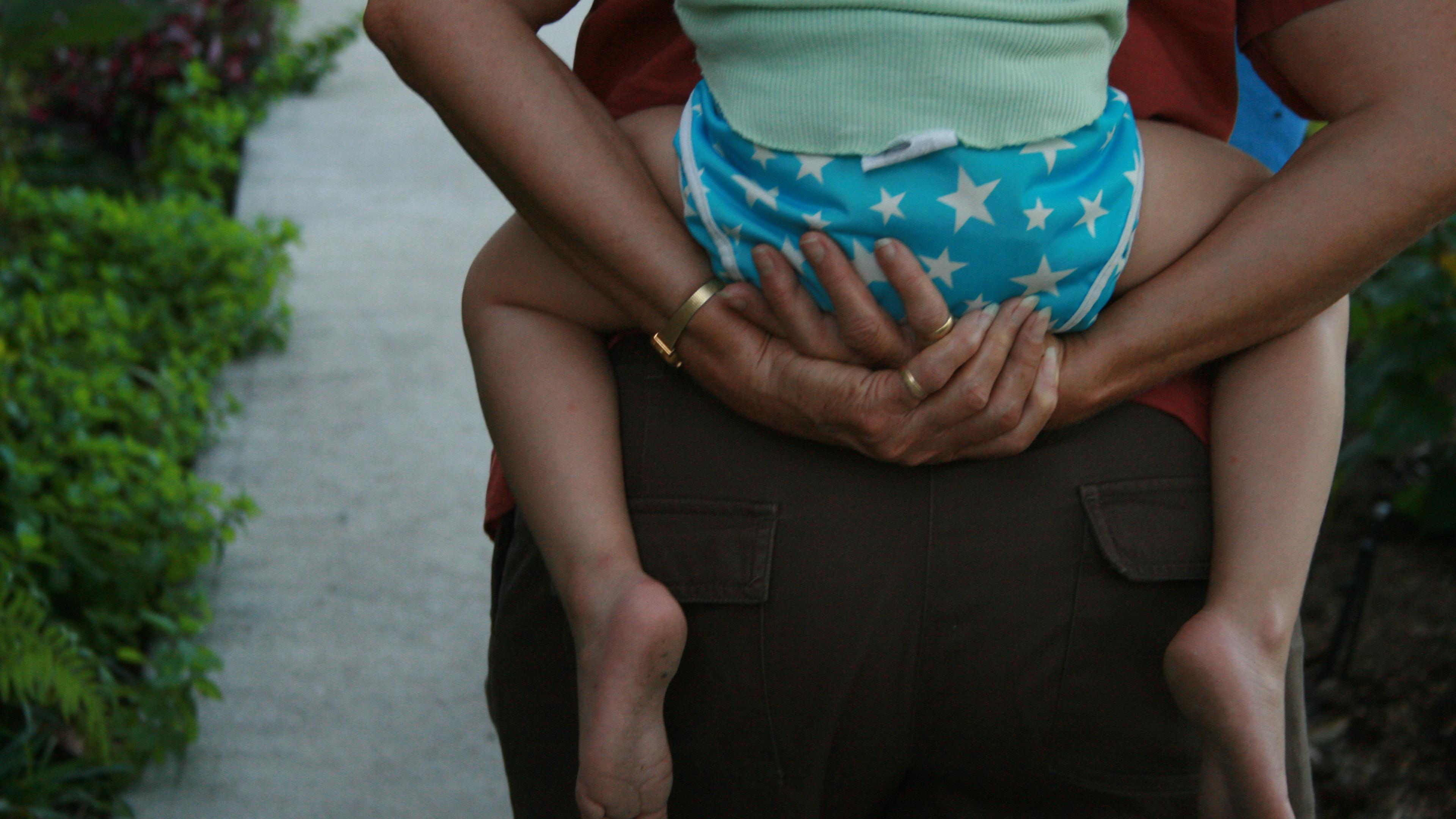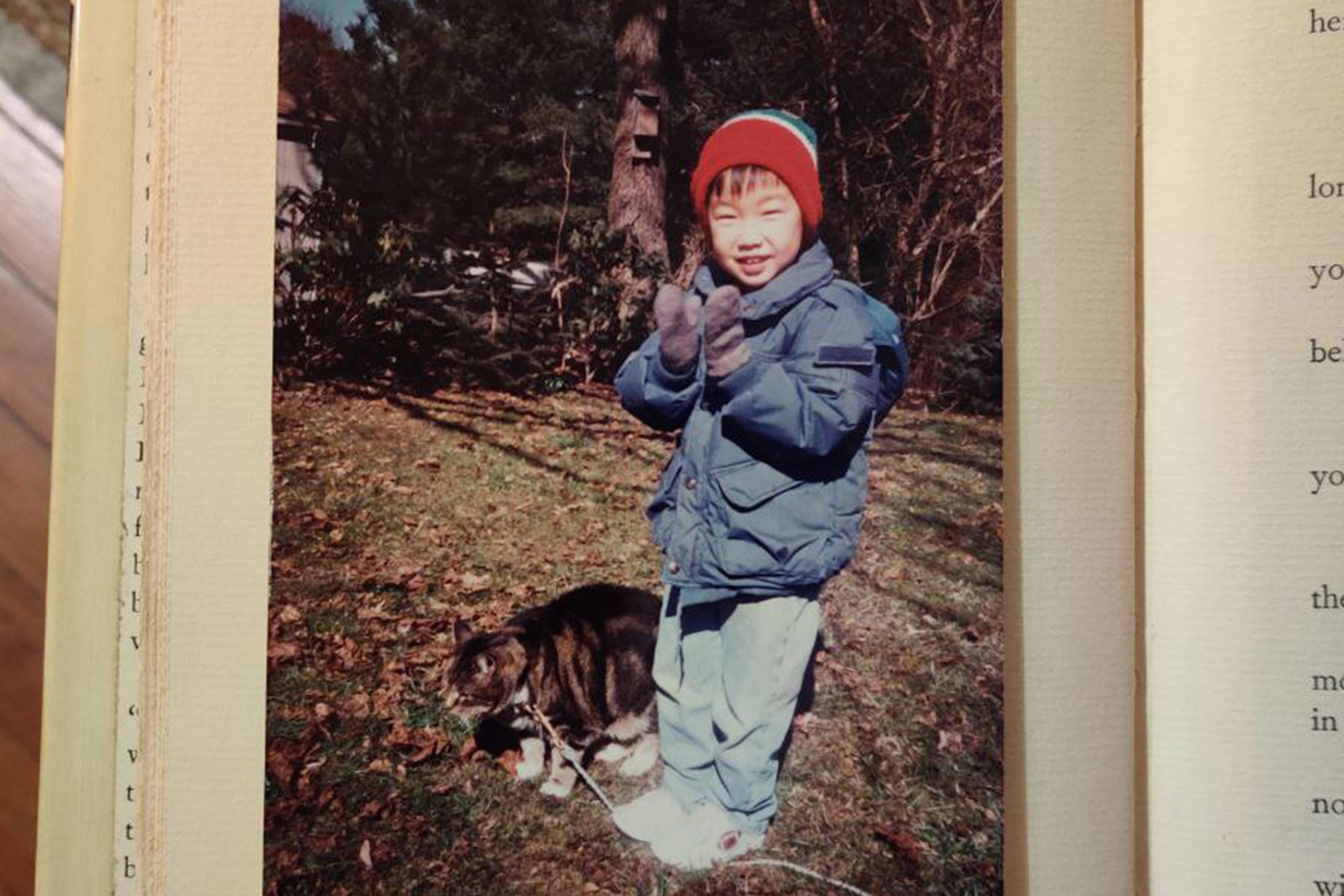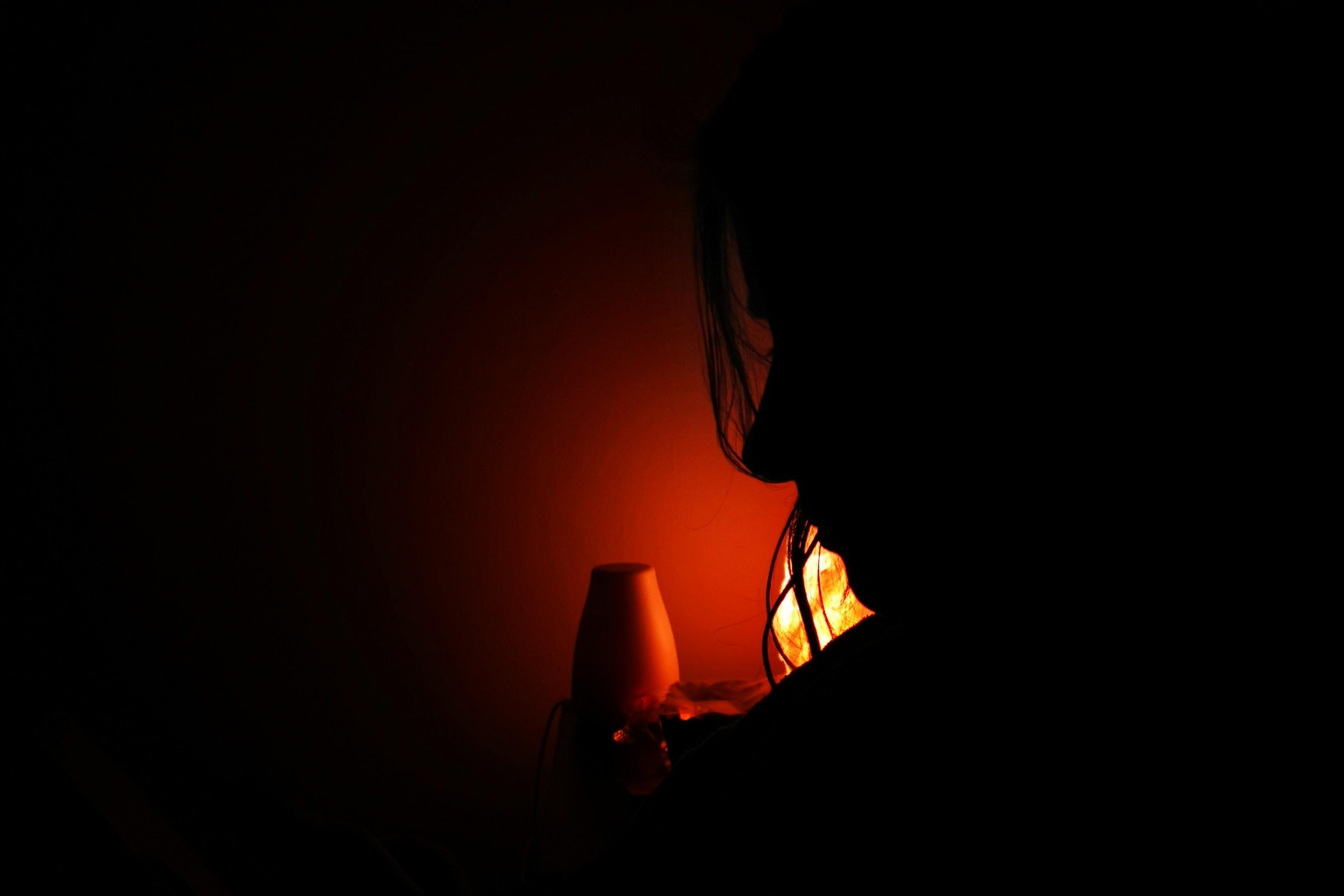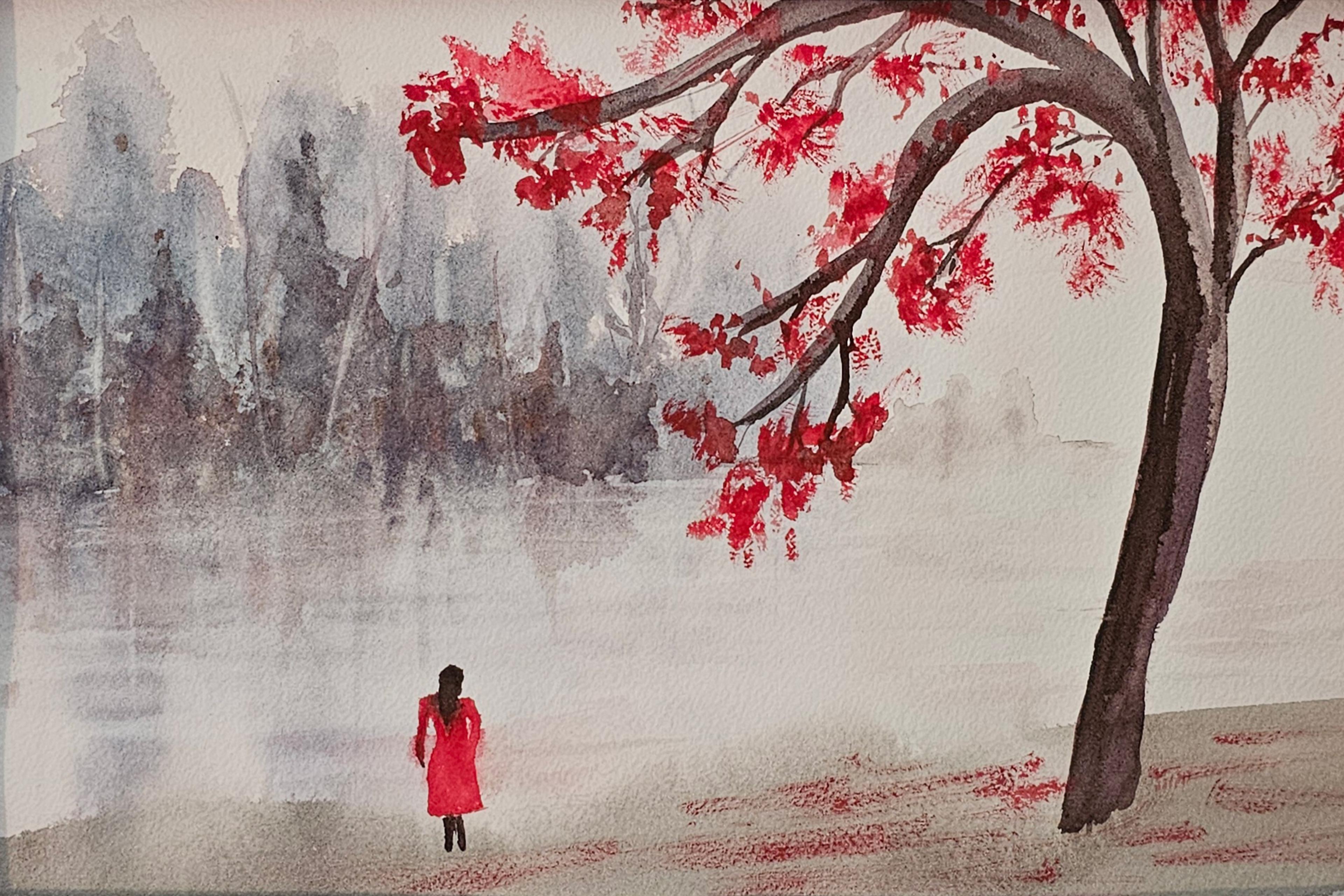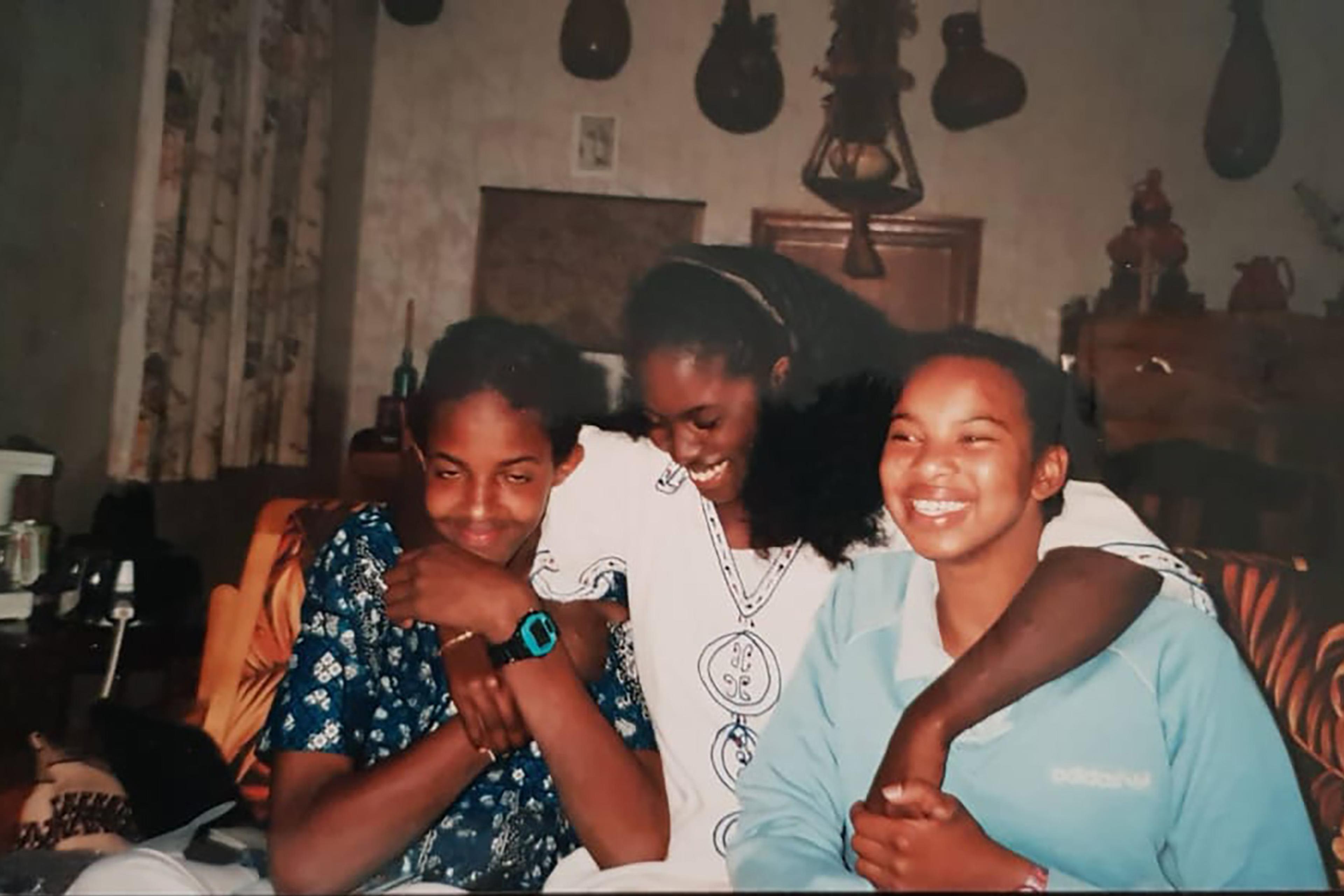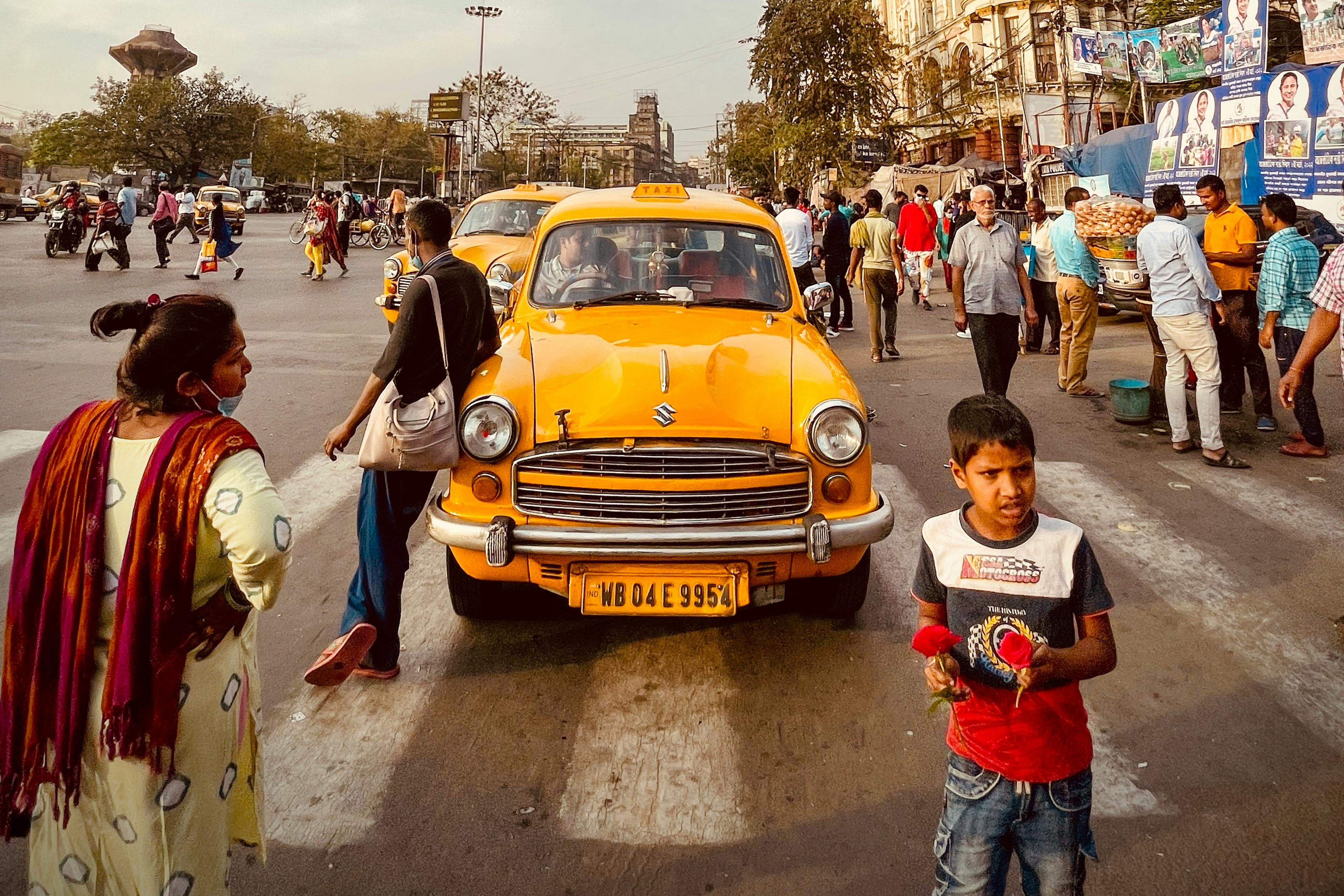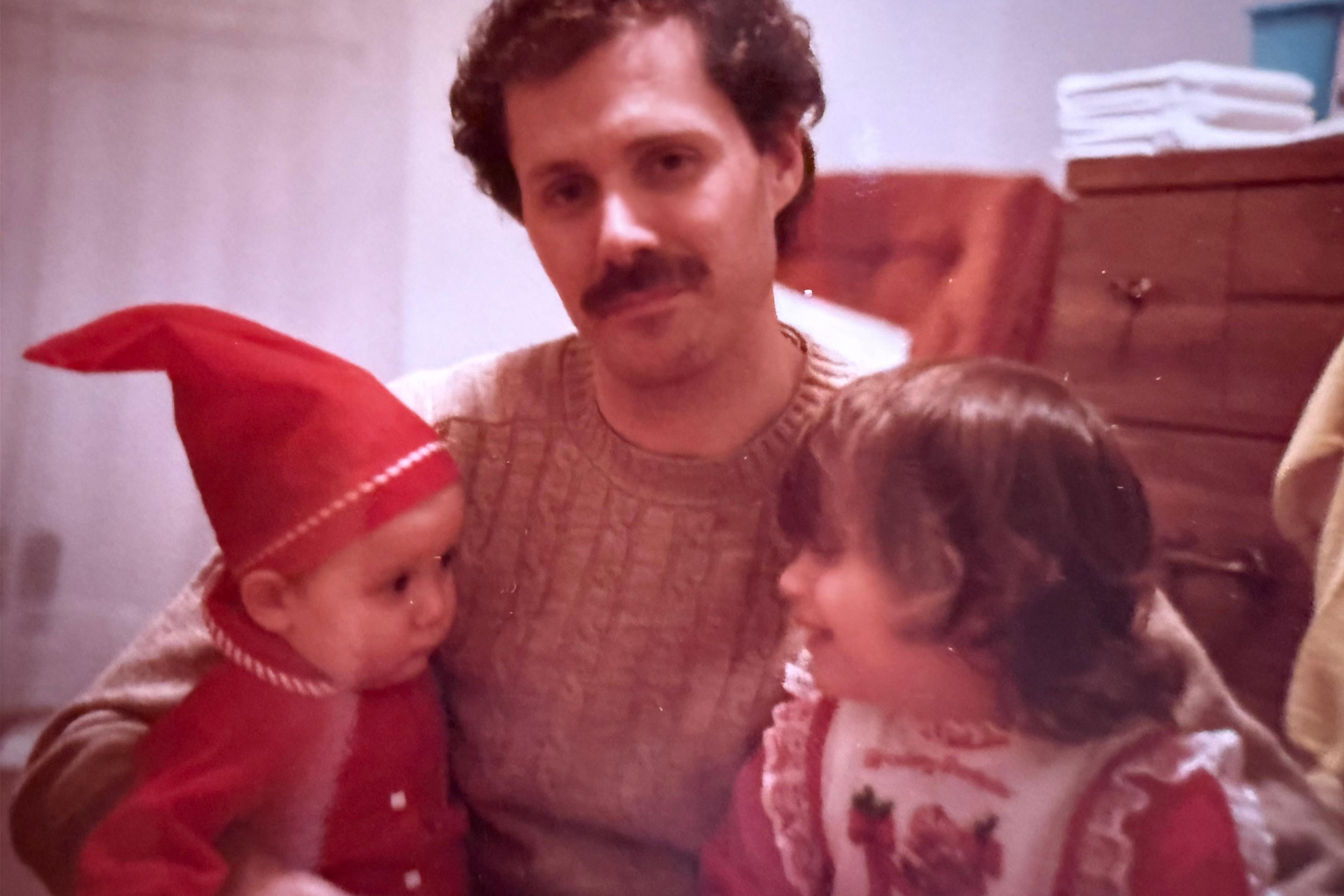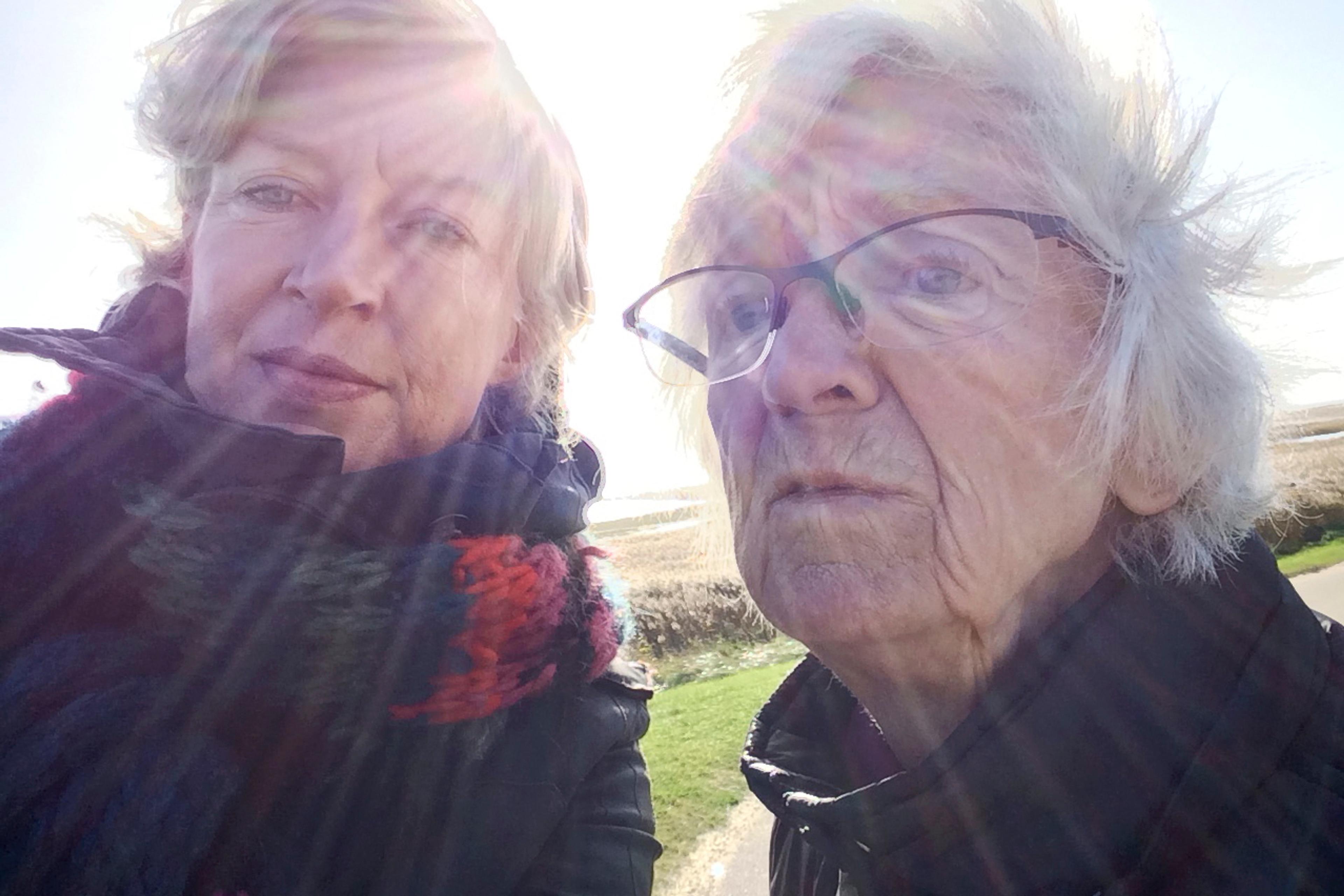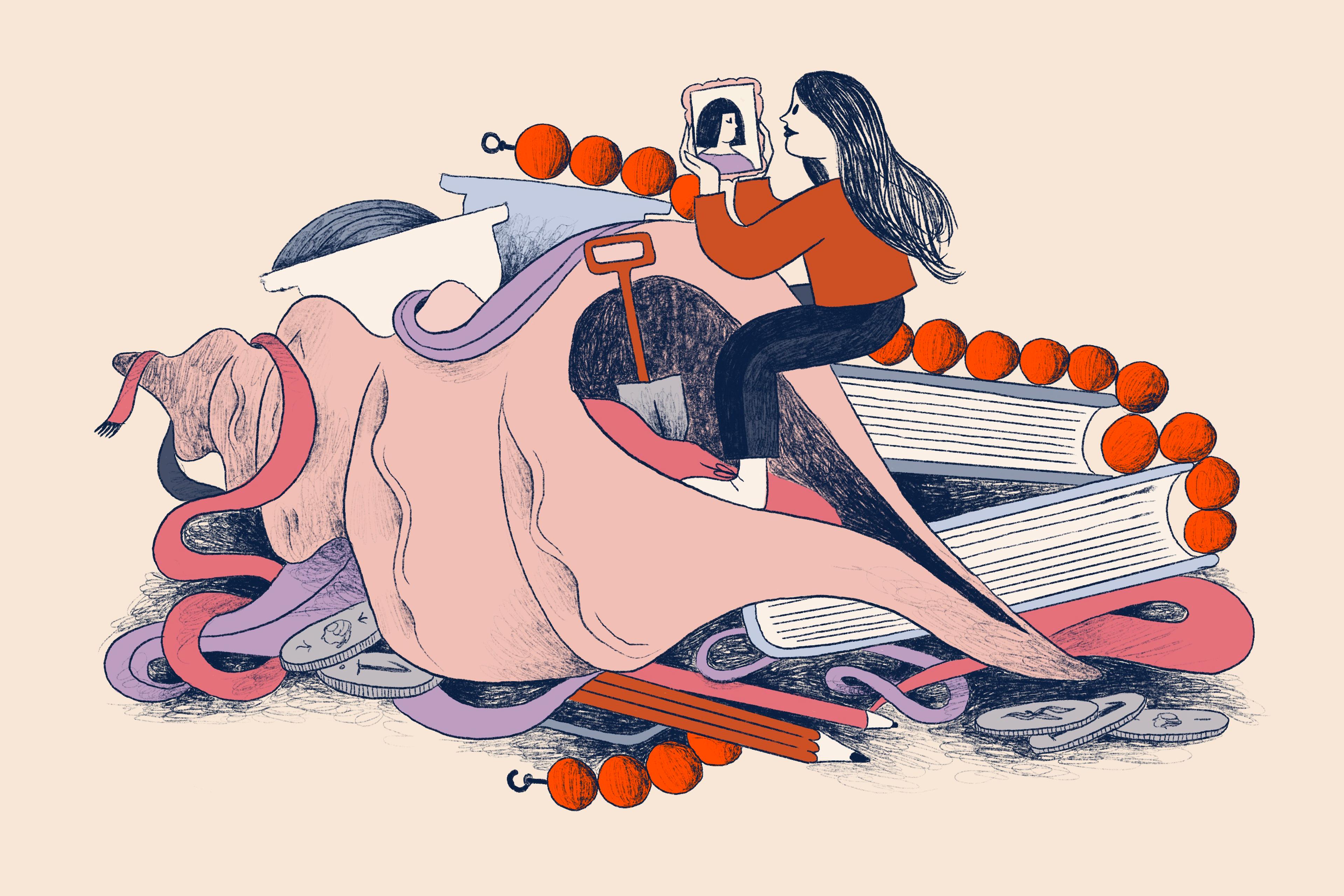I was 11 the first time I saw her. It was September – at least, I think it was. The trees were shedding. The mountains, ripening from green to red. Mom remembers it as September, too, but Dad says it might’ve been October. My biological brother and sister can’t remember. The three of us kids came home from school, and there she was. A little girl, wrapped in our mother’s arms.
It wasn’t unusual to come home to strangers in the house. Our parents hosted an emergency safe house for children taken in by social services. The kids would stay with us anywhere from a week to a few months. Usually, we were a short-term stop before they returned to their biological parents or got adopted.
She was barely a year old when she came to us. Thin black hair, enormous brown eyes. Mom adjusted her on her hip and looked to me. ‘Do you want to hold her?’
‘Sure,’ I said. I slung my backpack to the ground and reached out my arms. I knew the routine.
I ask each family member what they remember. I do it one on one, without the other members present. Memory is a muddled thing; I don’t want us to influence each other. It feels important, to separate the different threads of the story. To acknowledge how we remember it differently.
It’s been more than a decade now. Still, some details emerge consistently. Everyone remembers her earth-shaking tantrums. She’d bang her head against the floor, rip her own hair out. She’d cram her fingers down her throat and make herself vomit. Other details are slippery. When, exactly, did she warm to us? Where were we the first time she said Mommy and Daddy to my bewildered parents? At what moment did she become family?
She stayed with us for two and a half years. No other child stayed that long or developed such a strong emotional bond with us. At night, when she screamed and thrashed in bed, I’d sneak into her room and crawl in her crib with her. She snuggled against me, her hair damp and smelling of baby shampoo. I held her until she fell asleep.
Her sweaty handprints kissed our windows. The toys on her bed watched our every move
She was obsessed with my father. He worked near her daycare, and had to carefully plan when he left his building because she would stand by the window watching for him. If he left at the wrong time and she spotted him, she wailed and threw things until he came to pick her up. At naptime, she slept with a picture of him clutched to her chest.
She wasn’t ours. We knew that. We reminded ourselves of this constantly, as the days turned to weeks and then months. We had no claim to her, but she became part of us. Her sweaty handprints kissed our windows. The toys on her bed watched our every move.
Her biological mother’s court dates kept getting pushed back. She missed visitation appointments. Just a little longer, social services said as the months multiplied. Just a little longer. They paid my parents $13 a day, to ‘help make ends meet’. It wasn’t enough even for diapers. But we didn’t foster for money. We fostered because we cared about our community.
The months passed. We waited and rescheduled. Waited and rescheduled. In the meantime, we loved her.
My foster sister and I were in my room, playing with the cat, when she first asked me about it. Her eyebrows pinched as she struggled to form the words. ‘Keshy?’ she said.
I dangled a piece of string over my cat’s head. He swatted at it lazily. ‘Yeah?’
‘Where my mommy at?’
We looked at each other.
She knew so few words. Was brand new to language – brand new to asking questions and getting answers. But she knew how to say this, to ask this.
I didn’t know what to say, so I just hugged her. She squirmed away, giggling, and we switched back to playing.
An entire year later, social services called. Her mother had gotten a job, an apartment. She’d finally made her court case. Our foster sister was going home.
We knew, the way we always knew, that our time with her was temporary
My siblings and I waited in the car. Streetlights cut through the windshield, landed on our kneecaps. An empty baby seat sat between us.
She’d been gone a few months, but we saw her every other week or so. We were lucky: her biological mom liked us and let us babysit. Every time we picked up our foster sister, her clothes smelled like cigarette smoke.
It was June: sour-blue skies, the air flickering with bees. On the days we got to see her, our family played in the backyard. She threw handfuls of dirt in the air. I was 12 by then. There was a dull sadness to these visits, buzzing in the background. We knew, the way we always knew, that our time with her was temporary.
The worst part was dropping her off after a day together. Not knowing when we’d see her again. My dad went quiet after these visits. He’d retreat to his room and lie alone in the dark.
It barely lasted a summer. Her mother lost the job, and cops found meth in her apartment. Social services brought her back to us. They explained what happened, and told us that this was it: she was going up for adoption.
When smoked, meth residue settles on nearby surfaces. Fabric absorbs it. This meant all of my foster sister’s clothes, her stuffed animals, were contaminated. She sobbed in my father’s arms as we stuffed everything she owned into trash bags.
My father wanted to adopt her. So did my sister. I said I did too, but the truth is I wasn’t sure. I loved her ferociously, but sometimes I felt jealous of the attention she demanded, how all-consuming her presence was. My brother was indifferent. Years later, he said that he genuinely didn’t care either way. ‘I went with the flow,’ he said. ‘That’s what the gig was.’
My mom, though, was a full-time caretaker. She cooked, cleaned, changed diapers, and defused tantrum after tantrum while the rest of us were at work or school. Adopting a two-year-old meant committing to another decade of labour. That was never part of the plan.
A gulf opened between my parents. My siblings didn’t notice it, but I did. It was in hushed arguments, tense glances. Another year unfurled with our foster sister back in our house. It seemed like we were leaning toward adopting her. Then, the angels arrived.
The angels were a childless couple, warm and kind and coming over for dinner. They owned a small farm on the other side of town, complete with a tractor, a river, and pair of therapy ponies. It was like something out of a storybook. All they were missing was a child.
They promised we would stay in her life. We’d be her godfamily. They would treat us like extended relatives, inviting us over for holidays and calling us to babysit when needed. It was a convincing courtship. We trusted them.
I was 13 by then, and obsessed with making videos. I announced that I would create a movie for the adoptive parents to show our foster sister someday. The video would explain our role in her life, what foster families are, and how much we love her. It would explain that, although we aren’t related by blood, we’ll always consider her family.
I burned the video onto a thumbdrive and gave it to the angels. It was my stamp of approval. A way of saying, I believe you. They hugged me, and promised to share it.
The old cliché says you don’t choose your family. When folks use it, they’re usually talking about biological kin. But when you’re a child, it’s true whether or not you’re talking about blood relatives. As a child, you get no agency, no say in the matter. You go where you’re told. You listen to the people who are bigger than you.
We tried to explain to her, but of course it didn’t make sense. When she left, she screamed for days. She woke in the night, wailing for my father. The adoptive parents called us and said this was hard, too hard, and got worse every time we visited.
They wanted to change her name. During one of our visits, I accidentally used her old name, the name I knew her by. A horrible pause followed. Shame burned through me, rooted all the way into my toes. My foster sister started to cry. The adoptive mother snatched her up and took her to a different room.
According to God, our foster sister needed a clean break. No more visits
A few months into the adoption, we ate a tense dinner together. My foster sister scream-sobbed through the meal, then scream-sobbed through the goodbyes. And why shouldn’t she? Her family was walking out the front door, getting into the car, and leaving without her.
After that, the adoptive parents stopped answering our calls. They turned cold, distant. Then, one day, they sent us an email.
The parents, angels that they were, had been praying. They’d received a message from God. According to God, our foster sister needed a clean break. No more visits. No reminders of her past life. It was just too difficult.
So they cut us off. Threw away all the toys we’d sent her with. My mom tells me now, tearful over the phone, that it felt like they were throwing us away too.
We were no longer allowed to visit. For years, she was everything. Now, with a single email, she was gone.
I know it couldn’t have been an easy decision. That these parents were doing what they thought was right, to protect their family. I know that. But what I couldn’t shake was the feeling that these new parents wanted to possess her. They wanted her to belong to them. Is that what family is? Ownership? This new family changed her name, threw out her toys, eradicated every trace of her former life. They wanted to keep us away from her long enough for her to forget us. To start over. Three years later, when they finally let us see her again, our foster sister didn’t recognise us.
As an adult, I understand that her adoptive family was trying to protect her from the pain and confusion of the transition. But years of attachment don’t just disappear, no matter how old you are. By cutting us off, they forced her into another experience of abandonment – and forced us into the role of abandoners. This has lifelong reverberations. For the rest of her life, some part of this abandonment might live in her, alongside the original abandonment of her biological mother. And because she was so young and her adoptive parents exiled us so completely, she may never be able to reconcile those feelings through memory.
Losing my foster sister forever changed the way I think about family. To this day, I feel love and loyalty toward her, even though it’s one-sided, even though it’s stranded in time and she doesn’t know who I am. It’s led me to believe that kinship isn’t just about claiming each other, or ‘belonging’ to each other. It’s a web of both visible and invisible care, of entanglements that can’t ever be fully unwoven. It’s a tapestry made by people who lean in, love, and let go.
Sometimes, I imagine I can reach into this invisible web of care, and tug on the thread that connects me to her. I see aching-blue skies, smell sun-baked dirt. I hear her wild, reckless laugh, and I know, at least, that this happened. That I knew her once.
